Friends of Led Zeppelin and Black Sabbath, Uriah Heep have been a part of the primary wave of British laborious rock bands – and for a second it seemed like they might turn out to be as profitable as these bands. However medication, alcoholism and in-fighting meant they didn’t deliveron their preliminary promise. In 2012, Basic Rock seemed again on the rise and fall of a band who have been by no means as massive as they might have been.
August 14, 1975, and Uriah Heep are about to take the stage at Philadelphia’s Spectrum enviornment. The British band have the wind behind them because of the transatlantic success of their eighth album, Return To Fantasy, and 25,000 folks have crammed into the sold-out venue to see them play tonight.
For the previous six years Heep have grafted laborious to turn out to be one of many largest rock bands round. Their bombastic, multi-layered mixture of laborious rock and prog has turned them into a real folks’s band: beloved by document patrons and concert-goers, hated by critics. Return To Fantasy, artistically an enchancment on its pedestrian predecessor Wonderworld, has given them their first UK High 10 album.
To outsiders, Uriah Heep are on the prime of their sport. The fact, nonetheless, is that the five-piece are patching over a collection of monumental cracks. Behind the scenes, poisonous persona clashes are tearing the band aside – a state of affairs not helped by alcohol and drug issues. Bassist Gary Thain had been fired in the beginning of the 12 months because of a debilitating heroin dependancy; inside months he would die of drug-induced respiratory failure. His alternative is John Wetton, previously of Household and King Crimson.
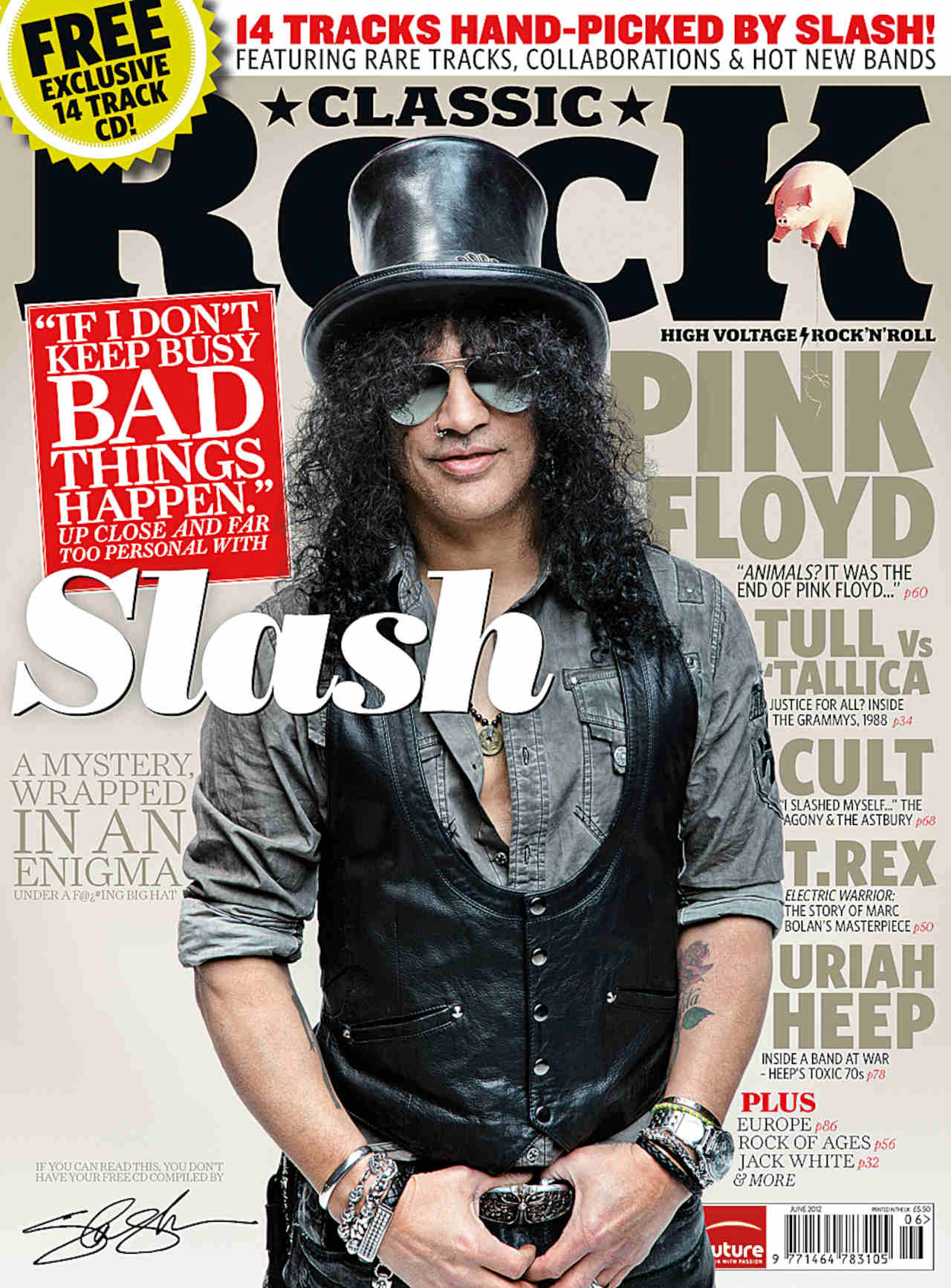
Proper now the band have a good greater downside: David Bryon. Their charismatic singer is within the grip of alcoholism, which is affecting his performances on stage and his life off stage. And, right here in Philadelphia, issues are about to achieve a head.
Bryon has spent the afternoon knocking again his favorite Chivas Regal whisky; by showtime he’s a multitude. Such is his inebriation that at one level within the present he staggers right into a microphone stand, slicing his lip. Realising that he’s bleeding, and mistaking the cheers within the enviornment for laughter, a mortified Byron activates the viewers, telling the entire damned lot of them to “fuck off”. The announcement astonishes everyone, on stage and off.
Almost 40 years on, Heep’s normally irrepressible guitarist Mick Field remains to be embarrassed by the reminiscence. “I used to be tuning my guitar on the time and couldn’t carry myself to show round and face the viewers,” he says with a sigh.
“I used to be embarrassed for David and for us,” says keyboard participant Ken Hensley. “When your lead singer curses out a whole viewers what do you do? He was pissing my profession down the bathroom in addition to his personal. I made my emotions clear a number of reveals later by strolling out on the tour. Wanting again, I ought to have been extra mature as a substitute of merely disappearing. However I used to be indignant and it was a knee-jerk response.”
It was right down to the band’s supervisor, Gerry Bron, to select up the items. Bron lower quick a vacation in Barbados and flew again to London to sweet-talk Hensley into returning to the tour. For Bryon, nonetheless, the writing was on the wall. “To ensure that Ken to remain within the band, we agreed that David must depart,” Bron says as we speak.
Byron was unaware of the axe that hovered above his head on the time, however the more and more distant angle of his bandmates within the wake of the Philadelphia debacle solely made him really feel more and more persecuted and remoted. Inside 12 months Byron was out of the band. He performed his remaining present with Heep on June 25, 1976 in Bilbao, Spain, though not earlier than kicking within the plate glass entrance door of the venue. “I believe even David had resigned himself to being sacked by then,” Field later noticed.
However by then it was too late. For Byron, and for Uriah Heep, issues would by no means be fairly the identical once more.
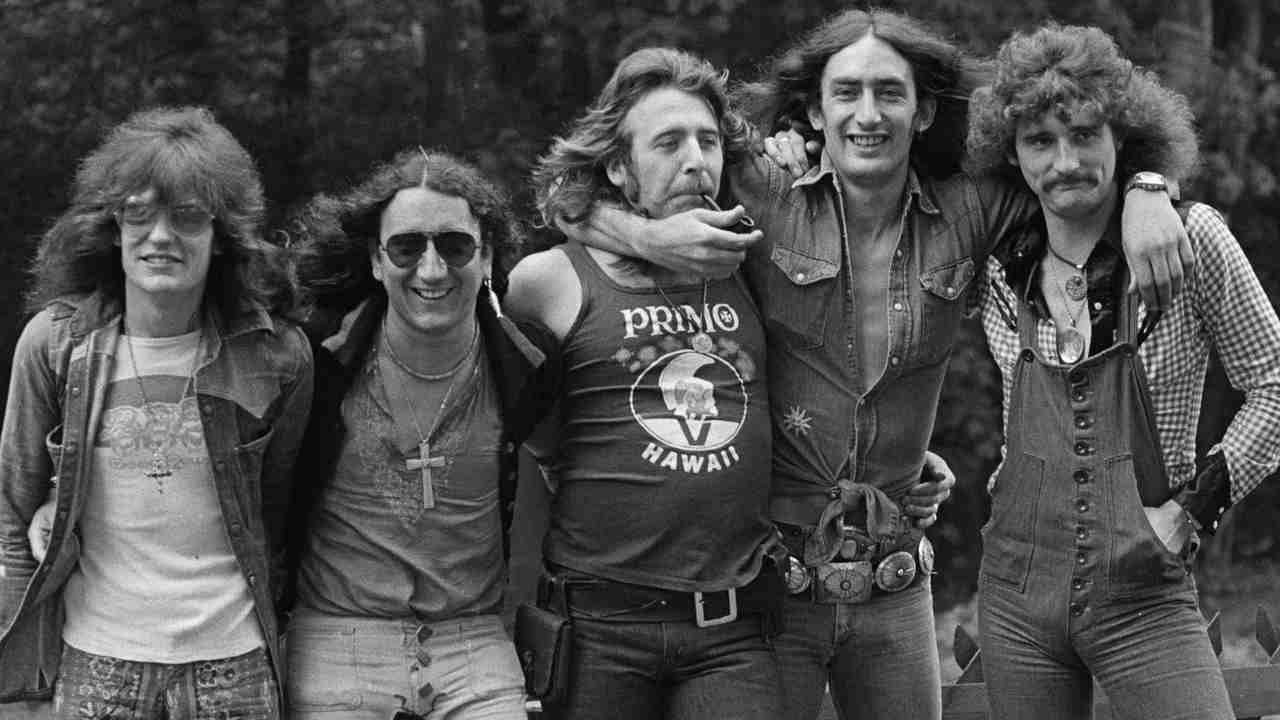
The Uriah Heep story is one in every of each triumph and tragedy. Between 1972 and 1976 they launched six albums that established them as one of many key bands of the period, a minimum of two of which – Demons And Wizards and The Magician’s Birthday – stand as landmarks of 70s rock. However behind the scenes have been ego issues, clashes with their supervisor, and substance issues that consequence within the untimely deaths of two band members.
Heep’s roots lay with Mick Field and David Byron. The down-to-earth guitarist describes the flamboyant lead singer (born David Garrick) as “a proud peacock of a person”. Collectively that they had been members of The Stalkers after which Spice. It was the latter band who have been noticed at a gig in Excessive Wycombe by Gerry Bron, the person who quickly afterwards would turn out to be their supervisor, producer and, with the inspiration of his Bronze Data in 1971, their label boss.
Bron is a central determine within the Uriah Heep story – and a controversial one. Older than his fees, he had already labored with Manfred Mann and Colosseum. Uriah Heep’s success would permit him to broaden the Bronze empire and ultimately signal the likes of Motörhead, The Damned and Girlschool.
“David Byron was positively the band’s chief,” Bron recollects of Heep’s early days. “He got here into the workplace and charmed everybody, together with the secretaries. 4 years later this good man had become an entire bastard, a demon.”
As Spice ready to document their debut album, Bron proposed that they alter their identify to Uriah Heep – impressed not by the character from Charles Dickens’s 1850 novel David Copperfield, however by an advert positioned within the Melody Maker by a possible worker who had adopted the moniker. “It was within the Conditions Wished part: ‘Skilled roadie seeks work, please name Uriah Heep…’,” Bron recollects. “I believed, ‘Bloody hell, what a unbelievable identify.’”

Equally pivotal within the Heep story was the addition, across the similar time, of keyboard participant/second guitarist Ken Hensley, a person who would show to be essential to Heep’s long-term future. The Londoner had beforehand been a member of blues/prog outfit Toe Fats and was in search of a greater platform for his appreciable skills. Hensley’s wealthy Hammond organ gildings have been the right foil for Byron’s flamboyant falsetto and the wah-wah-driven guitar assault of Field, all of which was sweetened by multi-part vocal harmonies. Extra pertinently, Hensley shaped an alliance with Gerry Bron that rapidly grew to become as essential because the Field-Byron coalition. “Ken and I have been a fantastic workforce,” Bron says. “I didn’t get on that effectively with the remainder of the band.”
Regardless of being mauled by the press (“If this band makes it, I’ll must commit suicide,” stated one author in Rolling Stone journal), Uriah Heep’s 1970 debut album, Very ’Eavy… Very ’Umble, produced by Bron, was a minor success. However it could take them one other two albums – Salisbury and Look At Your self, each launched in 1971 and each once more produced by Bron – for Heep to determine a strong musical path.
Every part got here along with 1972’s Demons And Wizards. Housed in an eye catching, Roger Dean-illustrated gatefold sleeve, it’s nonetheless thought-about to be the band’s crowning glory. Gloriously baroque songs corresponding to Straightforward Livin’ and The Wizard captured Uriah Heep’s creativity – the latter even contains the multi-tracked sound of a whistling kettle that had unintentionally gone off throughout a playback.
A big a part of the document’s creative success was the presence of a brand new rhythm part: New Zealand-born bassist Gary Thain added some elegantly melodic bass strains, whereas drummer Lee Kerslake had an aggressive strategy that beforehand had been missing. Crucially, each have been additionally helpful singers, including further depth to the band’s distinctive multi-layered vocal harmonies. Persona-wise, although, they have been like chalk and cheese: Kerslake was outspoken and bold, whereas Thain was shy and retiring.
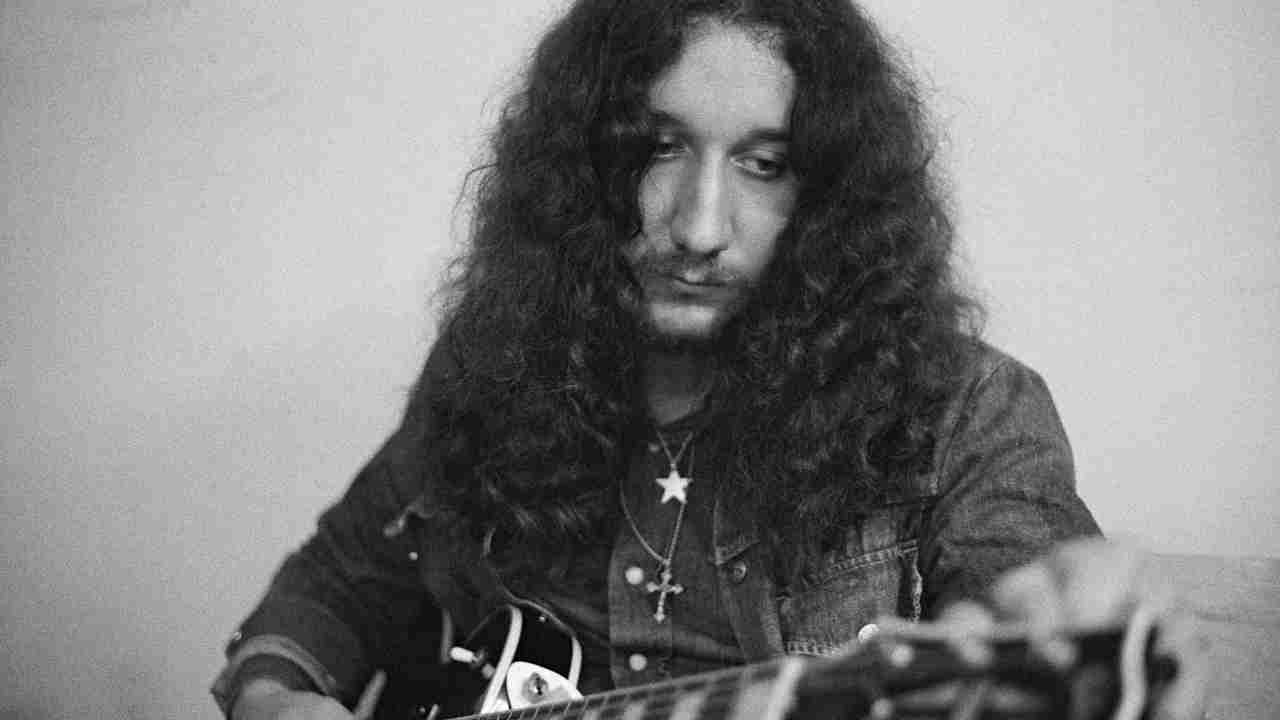
“With Gary and Lee there was such an unbelievable chemistry,” says Hensley. “The strains of communication have been open and, with not one of the obstructions that got here later, the chemistry created by these 5 folks was magical. The egos have been there, they simply weren’t clashing. Substance abuse was additionally current nevertheless it was minimal.”
Ashley Howe, Gerry Bron’s trusted engineer, had first encountered Uriah Heep in 1969 when he was a 16-year-old working in a studio as a tea boy-cum-tape-operator. He ultimately rose by means of the ranks to take cost of Heep’s Excessive And Mighty periods, earlier than happening to supply their Abominog and Head First albums in the course of the band’s 80s renaissance.
“Heep have been simple to work with as a result of the expertise flowed out of them,” he says. “That didn’t dwindle with time, however as persona conflicts grew it turn out to be more durable to attract out.”
Ken Hensley is unflinchingly sincere relating to his working relationships together with his bandmates. “Creatively talking, Mick was the least influential individual within the band,” he says. “Nevertheless, he was an important half as a result of his type and approach have been distinctive. Lee was the right drummer for Heep, however he had a want to exert a inventive affect that generally grew to become bit over-the-top. The back-up to fulfil that keenness wasn’t there, however in the identical means as Mick’s contribution was beneficial, so was Lee’s. David Byron was the quintessential showman, on stage 24 hours a day. His interpretation of my lyrics was exemplary – even now I can not carry them to life the best way he did.”
Byron certainly possessed an excellent voice and a magnetic stage persona. However there was a darker facet to his character.
“As a frontman, David blew anyone off stage – he might even eat Rod Stewart alive,” Lee Kerslake says as we speak. “The issue was that he didn’t have an ‘off’ change. There was additionally some shyness, however he disguised it together with his outgoing behaviour.”
Launched in Might 1972, Demons And Wizards gave Heep a UK High 20 album – and opened up a means in to the profitable US market. Not eager to let the momentum stall, they determined to place out a follow-up, The Magician’s Birthday, six months later. Or, quite, Gerry Bron did.
“The songs simply weren’t prepared,” says Ken Hensley. “They wished to exploit the cow as a lot as they might.”
Regardless of Hensley’s reservations, The Magician’s Birthday stays one in every of Heep’s cornerstone albums. It contains such landmark songs as Candy Lorraine, the majestic Dawn and the epic 10-minute title observe.
In addition to recording the The Magician’s Birthday additionally they toured Britain and North America throughout the identical interval. However clear factions have been beginning to type, with Hensley and Bron on one facet, and Field, Kerslake and Byron on the opposite. In the meantime, Gary Thain was changing into an more and more remoted determine.
“Gary’s contribution was higher than is recognised,” Bron affords. “As a result of he didn’t write songs, he got here to consider that his expertise was much less essential than the others. I used to have lengthy chats with him, and he would say: ‘Gerry, I haven’t bought something [to offer].’ However his present to the band was his unbelievable bass enjoying. Nevertheless, on the similar time he was getting an increasing number of into medication.”
Thain was changing into hooked on heroin, an issue he initially managed to maintain secret from the remainder of the band. The bassist was the one member of Uriah Heep on smack, however a few of the others have been discovering that they had their very own issues with booze and cocaine.
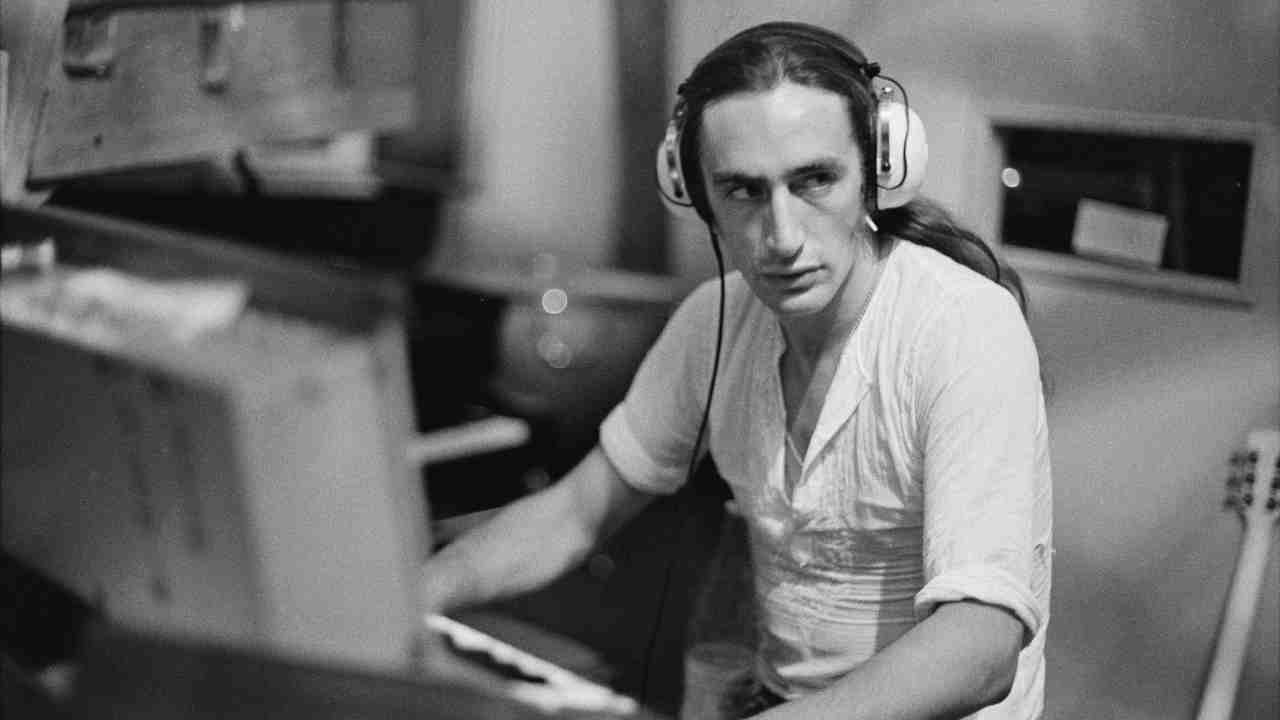
“There have been a whole lot of medication and drink, and that made it more durable to be inventive,” says Field. “I like an excellent drink myself, so I used to be caught in the midst of all of it.”
“You have to perceive how a lot being strung out on coke modified me,” admits Hensley. “I grew to become a monster to work with. Turning into addicted throughout
our first US tour was the best mistake of my life.”
The rising tensions weren’t helped by the truth that Hensley was beginning to dominate the songwriting. 5 of the eight songs on The Magician’s Birthday have been written completely by the keyboard participant; the remaining three have been co-written by Hensley and the others, together with the good-versus-evil title observe, which featured a symbolic battle between guitars and drums concocted one night time after returning to the studio from the pub.
“Kenny was an absolute genius as a author,” says Kerslake. “I’d hate anybody to suppose in any other case. However when he introduced in a tune the remainder of the band tore
it aside, put it again collectively and made it what it was. He couldn’t have carried out it with out the information and expertise of every member of the band.”
Inevitably, Hensley and Bron disagree. “I’ve heard that argument so many occasions earlier than,” says Bron. “Look, Ken was the captain, and the band the workforce. However they solely ended up resenting him.”
“Had I been in that state of affairs, the place one man writes one hit after one other, I actually wouldn’t have challenged him,” provides Hensley, “I’d have washed his automotive and made him tea. I’d need him to maintain doing it.”

Mick Field is adamant that Hensley’s work charge modified the band dynamic. “As soon as we had success with a few of Ken’s songs, no person else bought a glance in,” he says. “Being suppressed causes a whole lot of rigidity.”
Hensley’s relationship with the remainder of the band was additional strained because the royalties started to move in. As chief songwriter, he earned considerably greater than the others – and he wasn’t embarrassed to flaunt it.
“If I had a brand new automotive, I’d present it off,” he says. “However I problem anyone to take care of having nothing then changing into a millionaire in a single day. My behaviour then is one other factor that I’d return and alter. However in fact that’s unattainable.”
Hensley wasn’t the one one inflicting resentment throughout the Heep camp. Lee Kerslake claims that Gerry Bron’s ego had turn out to be “greater than the remainder of us put collectively”. The drummer recollects an incident at a gig in Rome when Bron was overheard speaking to the present’s reserving agent. “I’m Uriah Heep, and what I say goes,” their supervisor allegedly stated.
“It’s completely true,” Bron says as we speak. “I named the band, I put the entire thing collectively, and so they’d by no means have made it with out me steering them. In order that’s not an unreasonable declare.”
Amid the rising issues, engineer Ashley Howe tried to lighten the temper. “Gerry routinely fired me throughout every venture, for doing silly issues like winching a cardboard field disguised as a 10-ton weight into the air and dropping it onto Ken Hensley’s head as he was recording. Or placing collectively one thing product of candles and an alarm clock to resemble a bomb and hiding it in Ken’s piano – till Lee Kerslake heard it ticking and threw it by means of the window. However, as a thanks, as soon as the album was accomplished he’d pay to ship me to wherever I wished to go on trip, and re-hire me for the following one.”
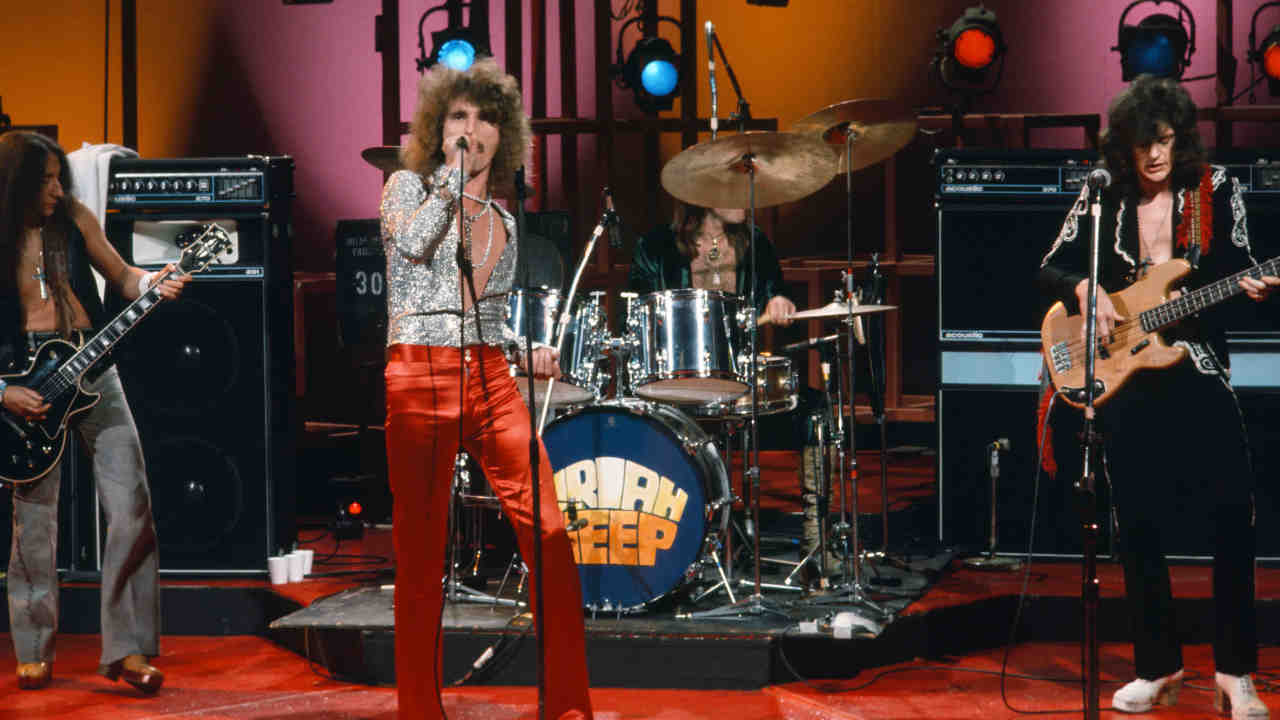
Having recorded their first 4 albums at Lansdowne Studios in West London, the band determined to document their subsequent two abroad. All now agree that it was a grave error. An more and more unhinged David Byron ran riot in the course of the recording of 1973’s Candy Freedom at Chateau D’Hérouville close to Paris, whereas Wonderworld – put collectively throughout three months of hedonism and bickering at Musicland in Munich – discovered each Thain and Byron’s issues worsening.
“I’ll always remember watching David attempting to cross a twin carriageway that separated the lodge and the studio in Munich,” says Field, wincing. “Vehicles have been whizzing previous him, and I believed: ‘He’s going to die.’ However he made it with out spilling a drop of the champagne cocktails he was carrying in every hand.”
The band did attempt to speak to the singer about his issues, however they have been hardly clean-living themselves. “Demanding that he cease would have been hypocritical,” says Lee Kerslake. “Moreover which, he’d simply go off and sulk. Deep inside I believe he knew he was self-destructing, he simply couldn’t cease.”
The magnitude of Byron’s downside grew to become obvious in the course of the Wonderworld periods. “David broke the unwritten rule by singing half-cut with a bottle of Dom Pérignon,” the drummer recollects. “Till then no person drank whereas we have been monitoring.”
“I nonetheless recall being in Munich the place one thing appeared to be distracting Ken within the studio,” says Bron. “David was crawling alongside the ground, attempting to achieve his bottle of whisky within the overdub sales space.”
Miscommunication and discontent have been such that Field and Kerslake went into the studio at some point in the course of the periods and located that Bron and Hensley had flown again to London. “We hadn’t completed the album however they’d had sufficient,” fumes Kerslake. “How dare they depart us there with out warning?”
Whereas sure members of Uriah Heep are fast to color Bron because the villain of the piece, Ashley Howe defends him: “They have been a bunch of 25-year-olds that beloved their rock ’n’roll, however Gerry knew the right way to run a enterprise. There he was, sporting a three-piece go well with, attempting to regulate these semi-lunatics. He was one of the best supervisor the band might have had.”
Field, Kerlsake and Hensley all say now that not solely was Bron sporting too many alternative hats when it got here to the band – he now represented them for administration, recording, touring, publishing and merchandising – however his day-to-day commitments
to Bronze Data and the acquisition of an airline, Government Specific, meant he was taking his eye off the ball. Bron himself agrees. “Sure, I wasn’t paying sufficient consideration, however that was as a result of they weren’t doing their job,” he says. “I most likely had misplaced curiosity by the point of Wonderworld as a result of, frankly, they have been now not excellent.”
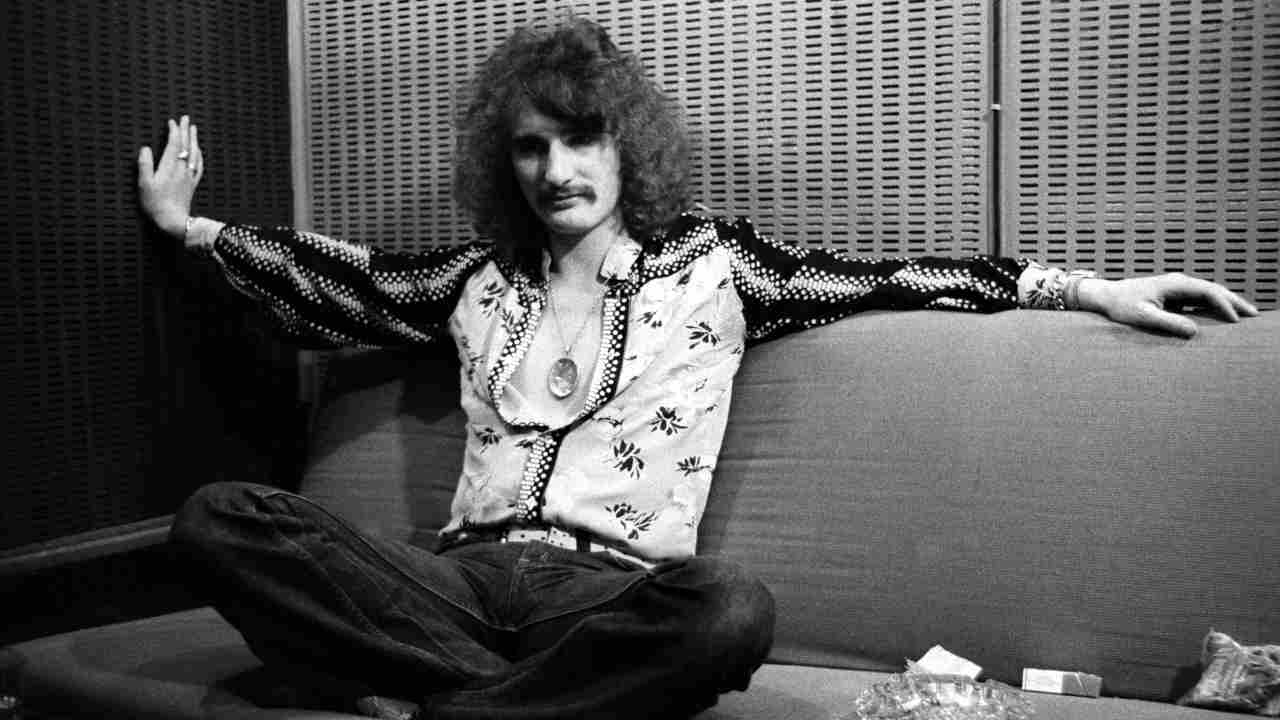
By 1974, with an entourage of 20 folks accompanying them on the highway in America, Uriah Heep had turn out to be a moneymaking machine. “Nevertheless, they weren’t doing so effectively that they might simply cease – for no matter purpose,” says Bron.
It was on the tour in assist of Wonderworld that Gary Thain’s well being started to be an actual downside. The unremitting schedule was taking its toll on the heroin-addicted bassist. Tales abound of Thain being carried onto flights on baggage trolleys, or his bandmates having to persuade pilots to let him on the aircraft when he was in no match situation to journey.
“If Gerry was half the supervisor that he bragged of being, the band ought to have come off the highway and people who wanted therapy been despatched to rehab,” maintains Kerslake. “However as a substitute he was so busy together with his studio, his document label and his airline that he didn’t take into account his actual bread-earners.”
Bron responds to the accusations with customary calmness. “Hear,” he says, “it’s simple to say these items now however no person complained on the time. They continued to do what they have been doing with none fuss.”
Mick Field vehemently disagrees. “Making such an essential determination on behalf of the band is what administration is about, absolutely?” he fumes.
On the highway, the insanity continued. Following a present in Harrisburg, Pennsylvania, an intoxicated Byron keeled over in his lodge room. Blood gushed from a deep head wound as he lay comatose on the lavatory flooring. Had the singer not given his room key to a feminine fan, he would greater than possible have bled to demise. In line with Bron, when Byron arrived on the hospital the singer couldn’t recall his identify, date of beginning or the place he lived.
“Even when confronted, David was unrepentant,” says Hensley. “He confirmed no indicators of wanting to alter. Clearly, the state of affairs couldn’t proceed.”
One of many highway crew’s jobs on the US tour was to provide a nightly debrief of every present, phoned in to the Bronze workplace in London and left on an answering machine. “Normally it was: ‘All is effectively, listed below are the figures…’ and ‘We’re on the aircraft to the following gig,’” says Gerry Bron. “However Byron, who by then was very drunk and taking capsules, discovered and began leaving his personal messages: ‘You load of fucking wankers’. He knew the ladies within the workplace must transcribe his filth.”
Bass participant Gary Thain left Uriah Heep in January 1975, after the Wonderworld tour ended. Eleven months later, on December 8, his girlfriend discovered him lifeless within the tub in his flat in Norwood Inexperienced, south London, having died of respiratory failure from a heroin overdose. He was simply 27.
The information prompted Ken Hensley to go on a cocaine binge. Mick Field doesn’t bear in mind the place he was when he discovered of Thain’s demise, however he says “it could have been on tour someplace. How did it make me really feel? Put it this fashion: I wasn’t stunned.”
With bassist John Wetton having been introduced in to interchange Thain, 1975’s Return To Fantasy so efficiently corrected the wayward course the band discovered themselves on after Wonderworld that it grew to become the band’s biggest-selling album thus far. Flush with confidence, Heep opted to supply their subsequent album, 1976’s Excessive And Mighty, themselves. Field, who later termed the document “much less of the ’eavy and extra of the ’umble”, admits he was extra excited by going to the pub than truly creating music.
“And that’s what he did, together with Lee,” says Hensley. “John Wetton generally confirmed up when he wasn’t busy with Bryan Ferry, which was good of him.”
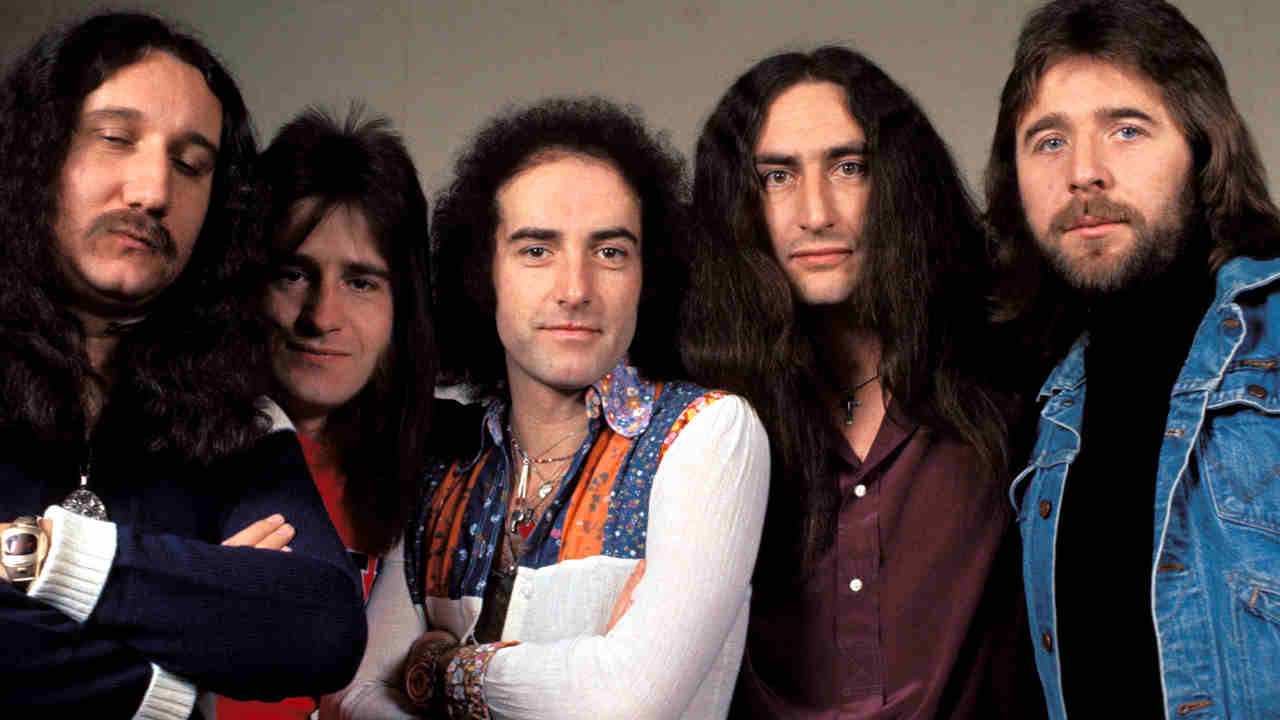
After three albums away from their orbit, throughout which era Bron put in him as studio supervisor of the Roundhouse Studios in North London, Ashley Howe re-entered the interior circle to engineer Excessive And Mighty. With supreme understatement, he makes use of the phrase ‘troublesome’ to explain these periods.
“Sure folks grew to become a bit laborious to regulate, which worsened after a number of jars,” he remembers. “Band members grew to become obstreperous. One man felt it essential to remind me that I’d begun because the tea boy. I received’t identify him, nevertheless it wasn’t Mickey.”
Field recollects Byron being despatched to the studio’s basement, the place a microphone had been set as much as seize the weird acoustics. “Solely we recorded the half, and since medication and drunk have been getting used, poor previous David was forgotten about. An hour later someone pushed up a fader and we heard: ‘You bunch of cunts. Let
me out of right here!’”
Howe admits to feeling uncomfortable when Bron attended the ultimate playback of Excessive And Mighty. “Gerry stated that he preferred what we had carried out, however I think it was very emotional for him to now not be concerned. It should have been a bit like letting a baby go.”
The truth is Bron hated Excessive And Mighty. “Gerry was by no means going to love it below any circumstances as a result of his nostril was out of joint,” says Hensley. “Kicking him out as producer was the fallacious determination. We have been attempting in charge him for the whole lot that was going fallacious.”
“As instrumental as Gerry was within the increase of Uriah Heep, he was equally responsible in bringing it down,” Field has stated.
“That’s them looking for excuses for having dropped the ball,” responds Bron now. “I don’t blame them for that. The actual purpose for Uriah Heep’s downfall is the friction between them, particularly David’s jealousy of Ken. It was infantile.”
As a lot because the prospect terrified them, the band realised that David Byron needed to go. The singer was sacked on the finish of the band’s Spanish tour in June 1976. An announcement issued by Bron shortly afterwards defined that the choice had been made “in one of the best pursuits of the group”, and revealing that that they had “already secured a alternative singer”.
Byron knowledgeable the NME that he was “completely relieved” by the transfer, including: “All of the issues which have been tearing me aside have gone.” Referring to Hensley’s domination of the writing course of, he went on to inform a Dutch journal: “We should always have used everybody’s songwriting. That’s why Excessive And Mighty is a bummer to me.”
Field, Kerslake, Hensley and Wetton all appeared on Bryon’s debut solo album Take No Prisoners (recorded earlier than his dismissal), however the singer’s issues prevented him from carrying on alone.
“David refused to be helped,” says Kerslake. “On one event he slapped me around the face, kicked and screamed at me. We couldn’t take it any extra. The worry was that he would drag us down with him.”
It’s a revealing indication of Heep’s standing that David Coverdale, Paul Rodgers and Ian Hunter all auditioned to interchange Byron, regardless that every turned the gig down. Hunter claimed to have been supplied £5,000 every week – no small sum in 1976. “I didn’t actually like what they did,” he later stated. In the long run the band settled on former Lucifer’s Buddy frontman John Lawton as Bryon’s alternative.
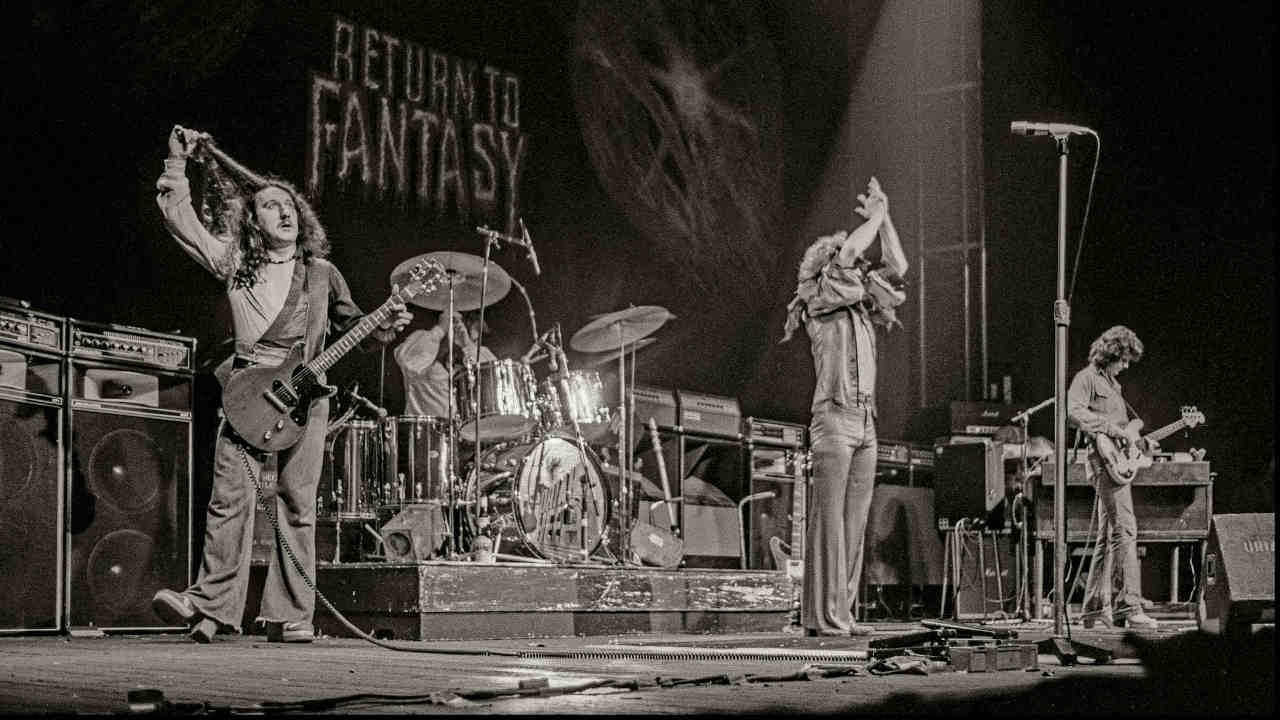
Subsequent albums Firefly, Harmless Sufferer and Fallen Angel stored the group’s identify alive, particularly in Germany, however a rift between Lawton and Hensley progressively opened. Changing Lawton with Lone Star’s John Sloman for 1980’s ill-fated Conquest was a disastrous transfer, and prompted Hensley’s departure from the band.
It was all an excessive amount of for Gerry Bron. “With out Ken, David Byron or Gary Thain, so far as I used to be involved we now not had a band,” he says.
In 1982, Field and then-bassist Trevor Bolder tried to carry Byron again for the Abominog album, however the singer was up to now gone that he turned down the thought.
“We went to see David at his home, and afterwards we sat within the automotive, exhausted,” Field recollects. “I stated to Trevor: ‘What simply occurred there?’ We’d had hope in our hearts [that he would rejoin]. However he was ingesting worse than ever, and he ended up attempting to persuade me to hitch his band.”
Byron by no means conquered his demons. On February 28, 1985 he was discovered lifeless at his dwelling in Studying. The coroner cited alcohol-related issues as the reason for demise.
Gerry Bron admits that he nonetheless thinks in regards to the sacking. “However what have been we purported to do?” he says. “Deliver the whole lot to a halt and anticipate David to kind himself out? How would we all know that he’d carried out so? Extra importantly, did he even wish to cease?”
The departure of Byron ended Uriah Heep’s imperial interval, although not their profession – they’ve continued to be a presence on rock’s panorama. At present Mick Field is the only real unique member, proudly flying the flag for the band he helped type greater than 40 years in the past. Between 1986 and 2007 the band – Field, Kerslake, bassist Trevor Bolder, singer Bernie Shaw and keyboard participant Phil Lanzon – loved a interval of stability that they by no means skilled throughout their 70s heyday.
However even then the previous often reared its head. In December 2001 Ken Hensley and John Lawton each carried out with Heep at London’s Shepherd’s Bush Empire at an occasion known as The Magician’s Birthday. Hensley shudders on the reminiscence.

“It was bloody terrible,” he says. “I wasn’t correctly ready, and I didn’t like a few of the jokes they made whereas rehearsing my songs. I seemed throughout the room, and there ought to’ve been someone stood the place Bernie Shaw was. It felt very faux. However a minimum of I bought to make my peace with Lee once more.”
“Ken’s feedback concerning Bernie are a little bit of an affordable shot,” says Field. “As a band we did the whole lot that we might to make Ken welcome, and humour is an effective ice breaker. I’m sorry he didn’t see it that means.”
Kerslake left the group on well being grounds in 2007. “My hospital check-up confirmed eight or 9 complaints together with tinnitus, and arthritis of the arm, elbow and knee,” he says. “At my age [64] there’s no means I might do one other world tour.”
In an sudden transfer, Hensley and Kerslake are contemplating working collectively once more. Moreover becoming a member of Blackfoot, working with W.A.S.P. and Cinderella and releasing solo materials, the keyboard participant maintained a low profile till the late Nineties. At present he has a brand new band, Stay Fireplace, and a solo profession; a brand new album, Love… And Different Mysteries, shall be launched this spring.
Mick Field has no plans to decelerate. Through the previous two years, Uriah Heep have adopted the type of itinerary that places youthful bands to disgrace, enjoying 5 excursions of America, a number of Russian treks, and gigs in such far-flung locations as South Africa, Georgia and Kazakhstan. The band plan to document their twenty fourth album within the spring.
The guitarist says he’s saddened by Bron and Hensley’s perceived bitterness however, magnanimously, thanks every on them for his or her contributions, at the same time as he pushes ever onwards with Uriah Heep.
“We’ve got a loyal and still-growing fan-base that always thanks us for offering the soundtrack to their lives,” Field concludes. “Our catalogue is performed at births, weddings, funerals and milestones in between. Evening after night time we see tons of and hundreds of followers singing alongside to our songs, previous and new, generally with tears of pleasure. That’s fulfilment certainly.”
“I’m very proud that we took a reasonably flimsy quantity of expertise and a whole lot of willpower and created one thing big,” Ken Hensley says, considerably modestly. “With hindsight I realise that the band fell aside for a lot of causes that weren’t music-related, which is disappointing.”
This function initially appeared in Basic Rock challenge 171 (April 2012). Ken Hensley, Lee Kerslake and Gerry Bron have handed away for the reason that article was printed.
